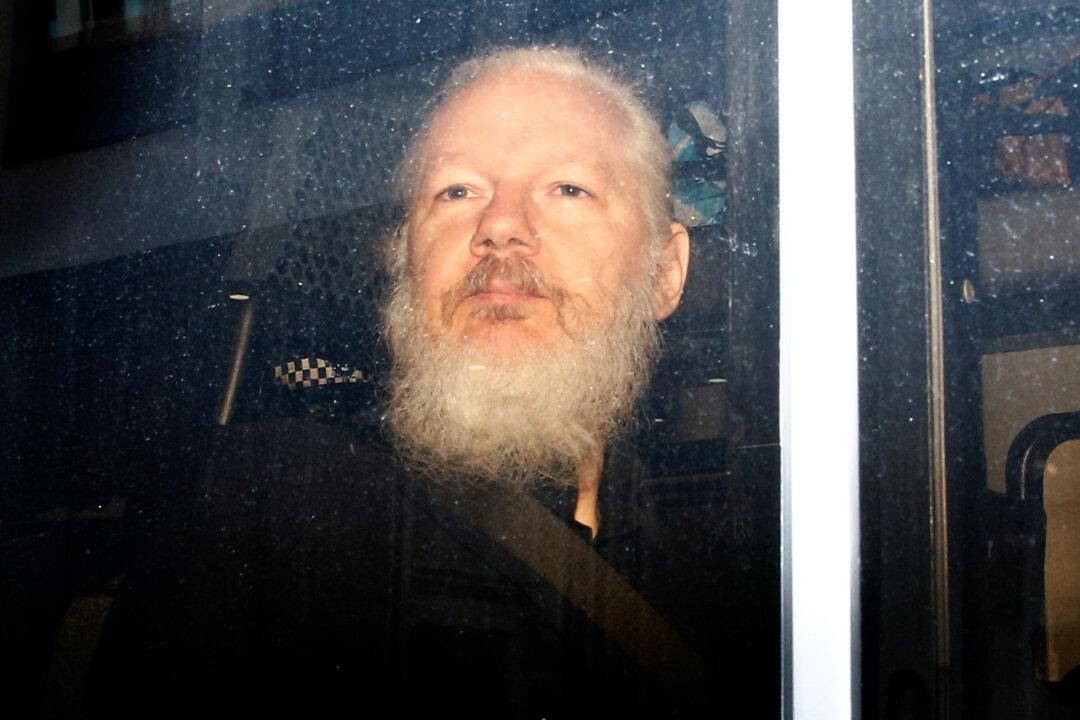LONDON—WikiLeaks’ founder Julian Assange is due before a London court on Friday, June 14, facing the next stage of a U.S. attempt to try him on spying charges after Britain’s interior minister said he had validated the American extradition request.
Assange, 47, is accused of conspiring to hack U.S. government computers and violating an espionage law.





